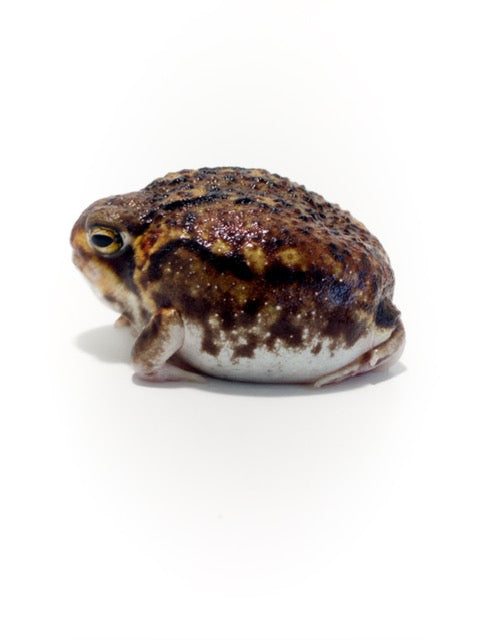Uncover Rare Rain Frog for Sale: Boost Your Amphibian Collection Today!
Uncover Rare Rain Frog for Sale: Boost Your Amphibian Collection Today!
Blog Article
Common Health Issues in Reptiles: Signs And Symptoms and Solutions
In the intricate world of reptile treatment, comprehending the typical health and wellness problems that may affect these one-of-a-kind animals is extremely important in guaranteeing their wellness. From respiratory infections that can silently hold to metabolic bone illness that can incapacitate, reptiles are vulnerable to a variety of disorders that call for keen observation and prompt treatment. Whether it's grappling with parasitical problems, browsing dehydration worries, or resolving skin conditions that materialize in refined ways, being attuned to the signs and symptoms and outfitted with the expertise of effective services is important for any type of reptile owner. By diving additionally into the nuances of these wellness problems and exploring the practical treatments available, one can protect the wellness and vitality of these remarkable pets.
Respiratory System Infections
Breathing infections in reptiles can substantially influence their total wellness and need prompt interest from seasoned vets. In reptiles, breathing infections can be especially testing to diagnose and deal with due to their one-of-a-kind composition and physiology.
Treatment for respiratory system infections in reptiles commonly includes a combination of encouraging care, such as maintaining correct humidity degrees and temperature slopes in the room, as well as targeted drug to deal with the specific virus in charge of the infection. It is crucial for reptile proprietors to monitor their pet dogs carefully for any kind of indications of respiratory system distress and seek vet treatment at the earliest indication of a concern. With timely treatment and ideal treatment, several reptiles can recuperate totally from breathing infections and return to normal activities.

Metabolic Bone Condition
What variables add to the advancement of Metabolic Bone Illness in reptiles?
Metabolic Bone Condition (MBD) in reptiles is primarily triggered by an absence of correct calcium, phosphorus, and vitamin D3 degrees in their diet regimen. When reptiles do not receive sufficient calcium, either with their food or correct UVB direct exposure for vitamin D3 synthesis, they are at a high danger of creating MBD. Reptiles with diet regimens reduced in calcium or unbalanced calcium to phosphorus proportions are particularly susceptible. Additionally, insufficient exposure to UVB light stops reptiles from synthesizing vitamin D3, which is vital for calcium absorption and bone wellness.
Not enough humidity degrees can also influence a reptile's capability to metabolize calcium effectively. Routine vet examinations, correct husbandry methods, and a well balanced diet plan are crucial to stop Metabolic Bone Disease in reptiles.
Parasitical Infestations
Parasitic problems position a substantial health danger to reptiles, impacting their total wellness and calling for prompt veterinary focus. Reptiles can be affected by different bloodsuckers, consisting of mites, ticks, interior worms, and protozoa. These bloodsuckers can cause a variety of signs and symptoms, such as weight management, sleepiness, skin irritation, looseness of the bowels, and also death if left neglected.
One usual parasite found in reptiles is the mite, which can trigger skin anemia, irritation, and anxiety. Ticks are another external parasite that can transfer illness and trigger pain to the reptile. Internal bloodsuckers like worms and protozoa can visit the site lead to gastrointestinal problems, poor nutrition, and deteriorate the reptile's body immune system.
To diagnose a parasitic infestation, a veterinarian may perform fecal tests, skin scrapings, or blood tests. Therapy often involves deworming drugs, antiparasitic bathrooms, or in serious situations, hospitalization. Preventative procedures such as routine veterinary check-ups, correct health, and quarantine procedures for new reptiles can help minimize the threat of parasitical invasions and make sure the wellness of reptile animals.
Dehydration and Hydration Issues
Dehydration in reptiles can substantially affect their health and well-being, demanding prompt intervention and appropriate hydration monitoring. Reptiles are susceptible to dehydration because of various variables such as insufficient water intake, high ecological temperature levels, and certain additional hints health and wellness conditions. Symptoms of dehydration in reptiles include sunken eyes, lethargy, loss of skin flexibility, and minimized urination. If left neglected, dehydration can result in serious wellness issues and also be deadly to the reptile.
To stop dehydration, reptile owners must make sure that their family pets have accessibility to clean water in any way times. The water recipe ought to be huge sufficient for the reptile to take in if needed, specifically for species that take in water with their skin. In addition, preserving appropriate moisture levels in the reptile's room and providing routine baths can aid prevent dehydration.
In situations of dehydration, it is crucial to look for veterinary care immediately. A veterinarian might administer fluids either orally or with injections to rehydrate the reptile. It is important to resolve the underlying cause of dehydration to stop reoccurrence and make sure the reptile's total wellness.
Skin Disorders

Verdict

Breathing infections in reptiles can significantly influence their overall wellness and need punctual interest from seasoned veterinarians (rain frog for sale). Preventative actions such as routine vet examinations, correct hygiene, and quarantine treatments for new reptiles can assist minimize the danger of parasitical invasions and make certain the well-being of reptile pet dogs
If left neglected, dehydration can lead to significant health problems and also be deadly to the reptile.
Frequently evaluating your reptile for any type of adjustments in skin color, appearance, or structure can aid in early discovery and therapy of skin ailments, promoting the general health and wellness and health of your scaly companion. - rain frog for sale
In final thought, reptiles are vulnerable to numerous health issues such as breathing infections, metabolic bone illness, parasitical problems, dehydration, and skin disorders.
Report this page